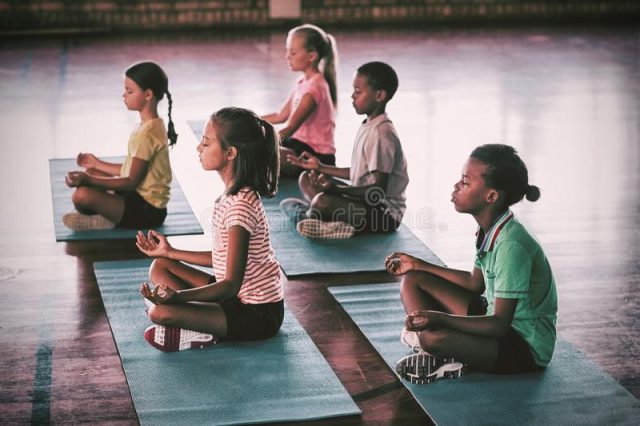
Exciting new research has started to look at how mindfulness and meditation-based programs can affect children’s brain development. Understanding how these approaches function is also crucial to maximizing their potential use in health care settings, such as assisting youngsters in managing the negative consequences of stress and trauma or dealing with procedures involving needles.
In the first brain-imaging study of children and adolescents under the age of 18, a team at Wayne State University (WSU) School of Medicine discovered that children who regularly meditate have decreased activity in the areas of the brain associated with rumination, mind-wandering, and depression. The default mode network, a group of brain areas, is thought to be active in mental disorders like depression and to contribute to the development of self-deprecating ideas.
On that study, the team contrasted two straightforward meditation techniques—focused attention to the breath and mindful acceptance—with a straightforward kind of distraction—counting backward from 10. The study was conducted by using MRI scanner on children that are seeing distressing video clips, such as a child getting an injection. The WSU team discovered that distraction was less effective in reducing activity in that brain network than meditation strategies. This supports studies that show mediation techniques, including martial arts-based meditation programs, are effective for easing pain and stress in children with cancer or other chronic illnesses.
Aneesh Hehr, a medical student, led this study. This study is very significant since mindfulness practices like mindful acceptance and focused attention on the breath are increasingly employed to assist kids deal with stressful situations in classroom settings. These might consist of trauma exposures, medical procedures, or even stress brought on by COVID-19. The effects of meditation on the brain and body in adults are well understood by researchers, but equivalent data for children has been sparse.
However, techniques for managing stress and emotions that rely on the prefrontal cortex may be effective for adults but less likely to be useful for youngsters. Meditation techniques might be easier to use and more useful for assisting kids in managing and coping with stress because they don’t rely on the prefrontal cortex.
The developing brain is wired differently than the adult brain, so it is crucial to comprehend what is happening in children’s brains while they meditate. These results are significant because caregivers and medical professionals frequently employ toys or other forms of diversion to ease children’s pain and anxiety during painful situations like medical procedures. But those methods can heavily rely on the prefrontal cortex, which is not fully formed in young people.
The WSU team seeks to have more discoveries about how meditation influences a child’s brain development. This covers the best meditation practices, the appropriate frequency and length, and how meditation differs for children.
References:
https://onlinelibrary.wiley.com/doi/10.1002/pbc.29917
https://www.sciencedirect.com/science/article/abs/pii/S0149763415302244?via%3Dihub





